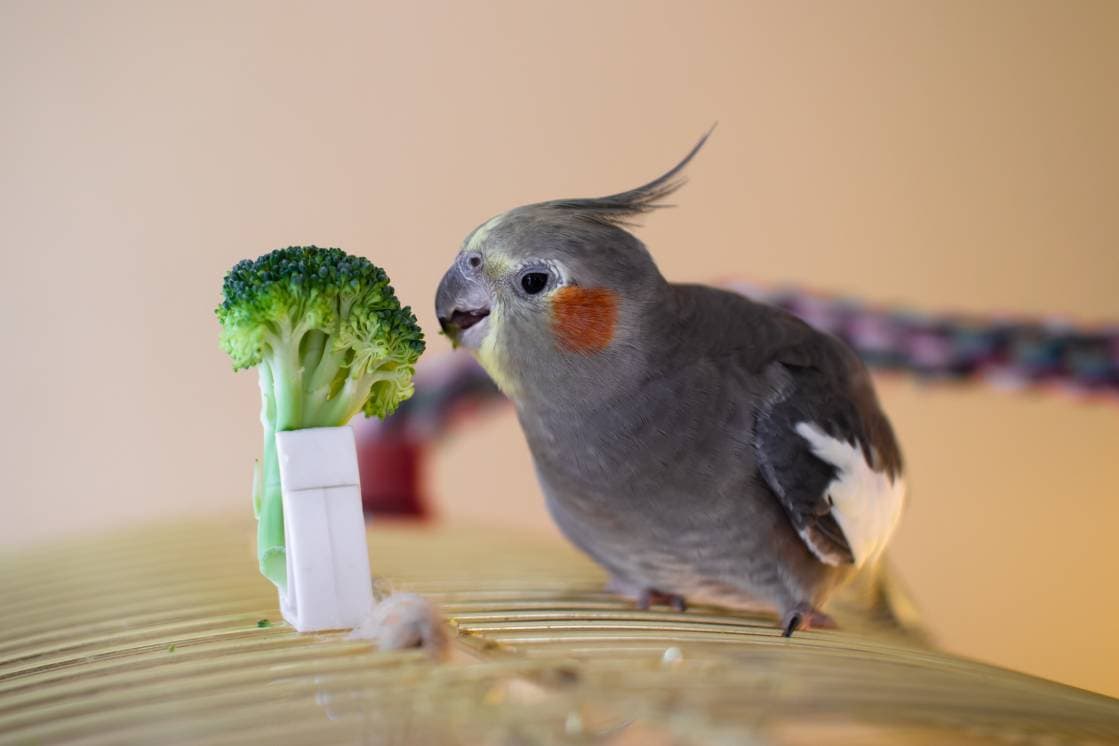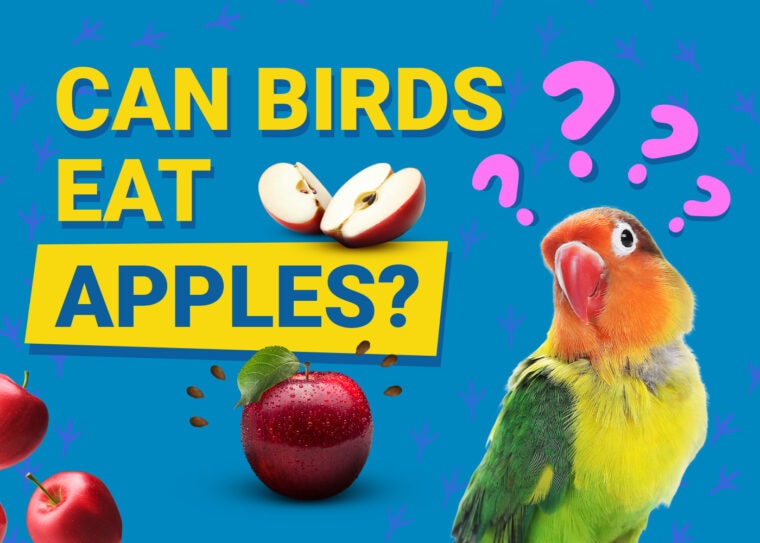
Click to Skip Ahead
An apple a day keeps the doctor away but does this adage hold true for our feathered friends? If you have a pet bird, you might wonder if apples are a healthy and safe treat to offer your pet since they’re so beneficial for humans.
Apples are a fantastic snack for birds because they’re full of nutrients. But there are some things you need to know before you offer an apple to your bird to keep them safe from potential risks. Keep reading to find out more.
Possible Benefits of Feeding Apples to Your Bird
Apples aren’t just tasty treats that most pet birds enjoy; they’re a source of antioxidants and fiber, and their simple carbs can give your bird a great energy source without too much excessive sugar.
Antioxidants & Vitamins
Apples provide a good source of antioxidants such as vitamin C, a necessary addition to your bird’s diet. Vitamin C can strengthen the immune system and protect body cells from free radicals. It’s necessary for your bird’s cardiovascular system and is essential in repairing tissues. Most birds make their own vitamin C, so it is rare to see deficiencies in this vitamin, but it is still a healthy addition to your pet’s diet.
Apples contain vitamin A precursors, which can enhance your bird’s eyesight. This vitamin also helps your bird’s feathers and its immune and reproductive systems.
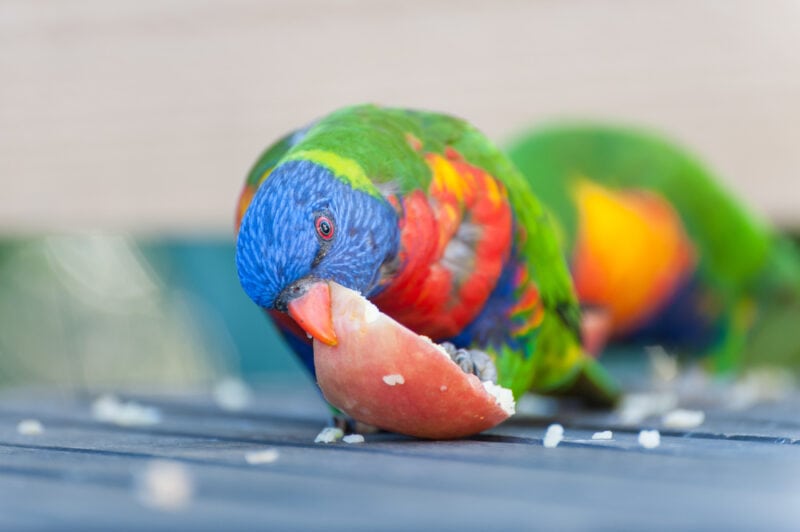
Minerals
Potassium is the main mineral in apples and has many benefits for your bird. It supports your bird’s heart health and can aid muscle function. This powerful mineral also enhances nerve functioning while simultaneously lowering blood pressure. Phosphorus is a powerful mineral also found in apples. Together with calcium, it plays a part in many bodily functions, such as bone formation, fat and carbohydrate metabolism, and egg formation.
Apples are also high in magnesium, a critical dietary mineral that your bird needs for bone and beak health, muscle coordination, brain neurons, and heart health. Magnesium can also support healthy calcium absorption.
Fiber
Apples are rich in fiber, another necessary component of your bird’s diet. Dietary fiber is a portion of plant-derived food that cannot be broken down entirely. The digestive tract of birds is unique because they do not chew their food. Instead, they rely entirely on their digestive system to do the work for them, so including fiber in their diet can help keep things running smoothly.
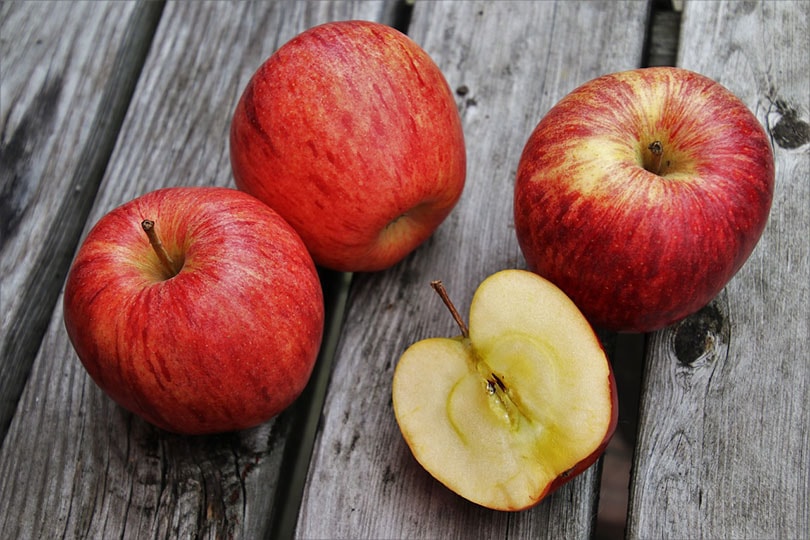
Low in Calories
Since apples are so low in calories, they’re an excellent option for birds on the chubbier side and those needing to lose weight. Excess fat can be just as serious in our feathered friends as it is for humans. Overweight birds are at risk of fatty liver disease or fatty tumors called lipomas.
Possible Risks of Feeding Apples to Your Bird
Though apples are incredibly healthy for your pet, there are some things you should be aware of before offering it as a snack.
High Sugar Content
Apples are best served as occasional snacks. Your bird needs a diet that includes a variety of vegetables, fruits, and nutritionally complete pellets. Fruit shouldn’t make up more than 15–30% of your bird’s diet. There should be larger numbers of veggies, which are healthier than sugar-laden fruit. While apples are healthy snacks, their high sugar content can become an issue if they’re offered too often. Too much sugar can lead to gastrointestinal distress, dysbiosis, and obesity.

Pesticides
While your bird can eat the apple’s skin, you should still peel it beforehand. Farmers use pesticides while growing their fruit; even after washing, these chemicals can be toxic to your pet. Apples are on the Dirty Dozen list, a list of fruits and veggies with the highest pesticide residue. The Environmental Working Group (EWG), the organization that created the Dirty Dozen, found an average of 4.4 pesticide residues on apples.
Seeds
Apple seeds are the most significant risk. These seemingly innocuous little black seeds contain trace amounts of cyanide that can be dangerous for your bird. Considering the small size of some birds and their affinity for seeds, it’s always better to be safe than sorry.
How Many Apples Should You Offer Your Bird?
Too much of anything—even a healthy treat like an apple—can present a problem for your bird. Apples are best offered in small quantities and in combination with a variety of fruits and vegetables. Give your bird one or two small slices of apple every 3 days. As a bonus, you’ll get to eat the remainder of the apple and boost your own health!
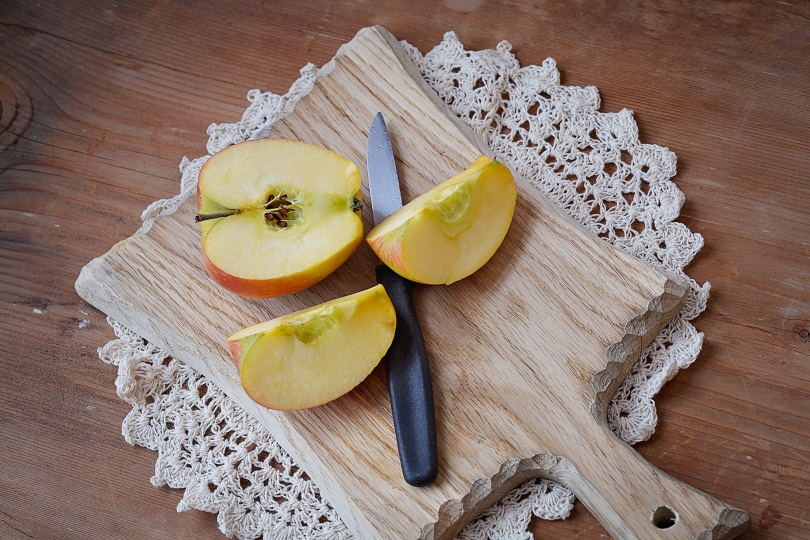
Final Thoughts
Apples are nutrient-packed treats that you can offer your bird as a part of a nutritionally whole diet. However, remember that your pet’s diet should consist of various vegetables, fruits, and pellets. While fruits are great snacks that you can offer as part of their varied diet, make sure you’re not giving your bird too much fruit, as the natural sugars can cause your feathered pal to become overweight.
Featured Image Credit: Couleur, Pixabay






